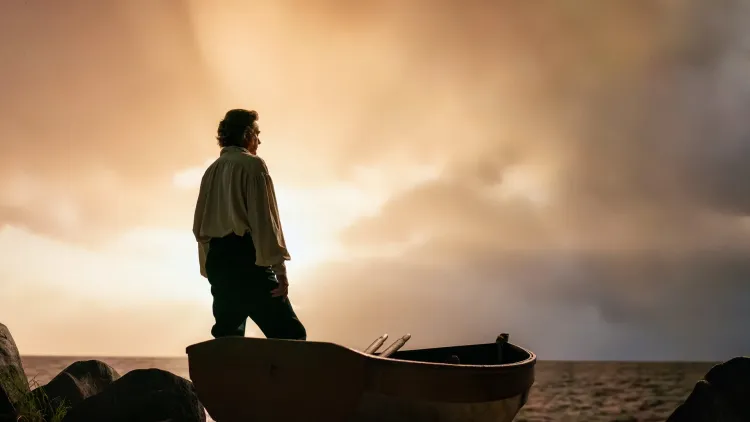So who were you?

There's been some small degree of debate on trans Twitter (which, really, why would you go there?) about a topic that seems easy to answer, until you realize it's twisting you in knots: Before you came out and/or transitioned, who were you?
This seems like it should be easy to answer! But I have not met two trans people who have the same answer to this question. There are some who very rigidly say they were always their actual gender, not the one they were assigned at birth. And there are others who say they "switched," in essence, going from who they were to who they are. Who they are is more authentic, goes this argument, but it doesn't invalidate all of the years they genuinely understood themselves as something else.
Most of us fall somewhere between these two axes. Like I can accept that a lot of things that happened to me as a young person make so much more sense if I understand that I was a woman, deeply confused by both the body she was in and the socialization she was undergoing. But that's retroactive understanding I'm applying to things that, at the time, I understood as things I was doing as a man. Until I was 22, I didn't have an inkling, because I grew up in an era when "transgender" wasn't a word one just stumbled upon. So who was I? A confused girl, or a confused boy? Or both?
(A necessary sidebar: The trans people who are most able to indulge this sort of speculative dissection of themselves tend to be more privileged in some regards than those who have to fight for every inch of their identities. This is not to invalidate any of this philosophical navel gazing, but it is to say that it's a lot easier to do it when you're not struggling for your very life. All of which is to say that as a boring white lady with a secure job, a secure marriage, and a home in a blue state, I have a lot more time to ask myself questions like this!)
I really do understand why the default answer from so many trans folks is, "I was always the gender I am, even before I came out." I think it's both a useful way of framing what can be a strange and alienating experience, and also a way to hopefully convince mainstream society that we exist as something other than curiosities. There are still a lot of cis folks -- and even cis allies! -- who find the idea of transness more than a little amusing. They're happy to support us, and call us by our names and pronouns, but they also think, on some level, that we're being very silly. If you can find a way to convince those people that your very being is intrinsically what you say it is, then you go several steps further along the path of building a culture where trans identities are accepted within the body politic.
But I also find it hard to make the leap to "I was always a girl." I can get to "I should have always been a girl," and I can get to, "I wish I had transitioned when I was a kid." But I can't get to "I was always a girl," because the way I constructed myself didn't allow me to think of myself that way until I was past 35.
All of the above is, in some ways, a short-term problem. The growing acceptance of trans folks in several circles is making it more and more possible that if a 6-year-old tells her mom and dad that, no, she's really a girl, they'll do what they can to affirm her identity. (Shout out to Charlize Theron.) Yes, there are TERFs and religious bigots and the like, and they are causing real hurt and harm to real people. But we are coming up on an entire generation of trans people who are indistinguishable from cis people, without looking at their birth certificates, and that's going to shift this conversation in ways I think nobody's quite anticipating. This wave of people my age and older saying, "Wait... am I...?" is going to crest and eventually break.
But for now, we have this weird in between period, when there are so many people coming out as trans at every possible age. And they all come with a different view of their experiences and their life to that point. They come complete with different regrets, too. (The great Grace Lavery has written so beautifully about this in her most recent newsletter.)
So I simultaneously get the desire to have a common trans narrative that can better explain to the cis what it means to live in our heads, but I also don't think we're ever going to find such a thing. We're all trying to express the same ideas but through different points-of-view, which is to say that transness is a prism, as surely as any other experience of human life is, and whatever the light you refract through "the community," it will come out in so many different beams based on who any one of us actually is.
So here is how I think of my former self: He (yes, I use male pronouns for him) was a life preserver. He got me across the wide ocean of my life so far, to shore, and now that I am on shore and walking on my own two legs again, I don't really need him any more. But I'm not going to throw him out either, because I am so thankful that he got me here, and the least I can do is keep him in a closet somewhere and take him out every so often and marvel at the fact that I needed him to stay alive, in the cold waters, for all those years when I could have otherwise slipped beneath the surface.
I am a trans woman in her 30s. I live in Los Angeles, and you might have heard of my other self. I'm obviously not named Emily Sandalwood, because lol, whose last name is Sandalwood? Anyway, you can respond to this, and I will look at your reply and nod sagely and probably never write back, or you can follow me on Twitter, where I am extremely funny.





Member discussion